Yu-Gi-Oh!: Terrifying or Inspiring?
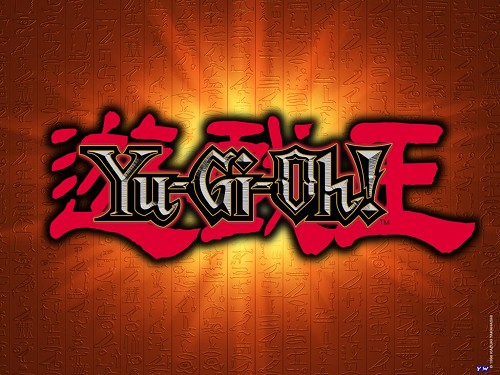
Yu-Gi-Oh! (by 4Kids Entertainment) is a kids’ show from the early 2000’s whose reputation lives on almost a decade later. When the original cartoon ended movies were released and Duel Monsters continued on in other spin-offs of the universe such as Yu-Gi-Oh!GX, Yu-Gi-Oh!5D’s, Yu-Gi-Oh!Zexal, and Yu-Gi-Oh!Arc-V. Many people today buy and play Duel Monsters– a “real life” card game which mimics the one played in the show. Although Yu-Gi-Oh! has become a mainstream name few know its origins and assume it was an American based cartoon, just as many believe the card game itself is called “Yu-Gi-Oh” rather than Duel Monsters. Before it became a favored children’s show in North America, Yu-Gi-Oh! started as a Japanese manga written by Kazuki Takahashi. The manga was originally intended to fit into the horror genre but its conception was engulfed by themes of gaming and friendship once audiences reacted so positively to characters playing Duel Monsters. Often overlooked because of the consistent theme of “good conquering evil,” this article would like to emphasize some ideologically frightening aspects of the tv show that fans likely didn’t notice as a child.
Yu-Gi-Oh! uses a reincarnation-like theology that revolves around the existence of disembodied spirits which can latch onto and live in inanimate objects. It is through interaction with such spirits that most conflicts in the show arise. In Yu-Gi-Oh! the spirits dabble with dark powers from their ancient past, a time when Duel Monsters was a practice of real sorcerers battling terrifying manifested beasts (and not just a card game). These disembodied spirits have the ability to possess others, and the Millennium Items (artifacts from their time) give their wielders god-like powers. Child viewers don’t acknowledge the ancient evils which conspire to destroy humanity as being disturbing because those threats are undermined by the protagonists’ consistent success. Not only is the show rife with possession, it seems to promote reckless gambling in its portrayal of Yami Yugi, who always bets everything and never loses. Despite hosting a protagonist who takes unnecessary risks, Yu-Gi-Oh!’s popularity is likely founded on that same principle; it’s only because the stakes are always so high that the characters are so motivating.
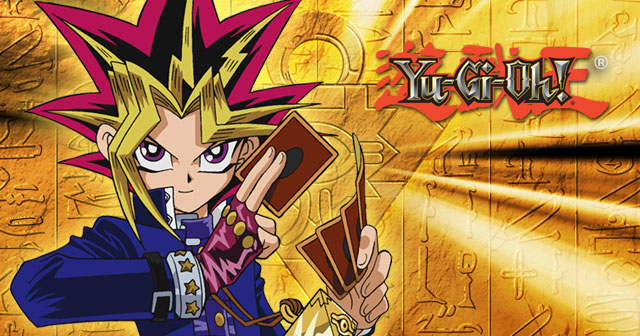
Disclaimer: This article is looking only at the first two seasons of Yu-Gi-Oh! Duel Monsters English anime series dubbed by 4Kids Entertainment as aired in North America. What is described may differ from its first original animation with Toei Entertainment or manga.
Slaves
Introduced in season two is the character Marik Ishtar who plays antagonist to Yugi. Marik wants to defeat the Pharaoh (Yami Yugi) hidden in Yugi’s Millennium Puzzle so he can rule the world… Marik also wields the Millennium Rod which allows him to control the minds of others. Marik is unable to possess Yugi because he is under the protection of Yami Yugi (who consensually shares his body) so Marik instead targets Yugi’s friends. Marik successfully takes control of Téa and Joey’s minds and rigs them into death traps so Yugi has no choice but to duel him. Viewers dislike Marik for having put their favorite characters in such dangerous situations, but often don’t see the bigger picture: Marik has terrible supernatural powers which give him an unfair advantage over other humans, powers no one should ever have.
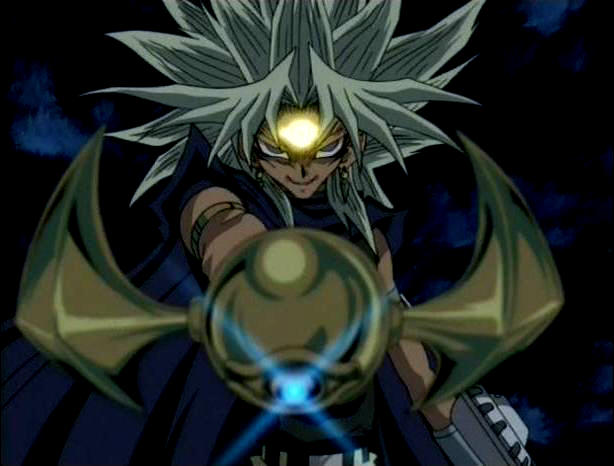
Children follow the story and relate to the world of Yu-Gi-Oh! through Yugi, the protagonist. Because of this, they don’t acknowledge how vulnerable they would be to the influence of someone with a Millennium Item. Marik Ishtar is a disturbing conception. Yugi’s inherent immunity undermines how easily his fellow main characters had their free will taken from them. This is where Yu-Gi-Oh! stops being a fantasy and starts being horror.
Possession was first introduced in season one by the character Bakura (Yugi’s classmate) who is controlled by an evil spirit in the Millennium Ring referred to as Yami Bakura. Yu-Gi-Oh! intensifies Bakura’s unfortunate circumstance when it introduces Marik who has hundreds of “mind-slaves.” The Millennium Ring’s spirit relies on Bakura’s body to sustain itself giving Bakura’s life some value. In contrast to Bakura and Yugi’s possession, Marik’s mind-slaves are completely disposable to him. Marik is introduced as a character who neither values human life nor free will. Marik sacrificed many of his followers attempting to mimic the power of the Egyptian God Card, the Winged Dragon of Ra. Many religions’ God(s) can/will not interfere with people’s free will, while Marik actively takes mind-slaves to use as pawns. (This is also seen in Pegasus trapping people’s souls in cards with his Millennium Eye, though to a much lesser extent.) To the North American culture which promotes individuality, free will, and the sanctity of the soul, Yu-Gi-Oh! seems almost blasphemous.
Yu-Gi-Oh! as dubbed by 4Kids Entertainment was greatly altered from Yu-Gi-Oh! first animated by Toei Animation because of its target audience. Toei Animation shows Yugi as a boy with competence and love for many different games while 4Kids Entertaiment presents a world engulfed by Duel Monsters in which Yugi specializes. What differs most between the two Yu-Gi-Oh! series’ is their presentations of violence. Toei Animation and its Japanese fanbase do not shy away from scenes of severe physical violence, something which Yugi and his close friends suffer at the hands of villains in nearly every episode. Physical violence was censored out of 4Kids Entertainments Yu-Gi-Oh! not only because parents frown upon it in children shows, but also because it was meant to target the fears of the specific American culture which aims so diligently to enforce freedom and consent. Presenting children with villains which use others, Yu-Gi-Oh! aims to reinforce their naturalized ideals; to those who value spiritual sanctity above physical well being, Marik is a thing of nightmares because he can corrupt both. Mind-slaves and Shadow Games are central elements of the show which aim to threaten characters’ souls and thus their integrity and ability to do what they love, making them easier to empathize with.
Gambling
In season one the stakes are high in Yugi’s duels; he fights not only for the title of King of Games, but also to free his Grandfather and the Kaiba brothers from the season one antagonist, Pegasus. The “Shadow Games” were first introduced when Pegasus played Yugi in the second episode of the series. Pegasus took Yugi to the Shadow Realm with the powers of his Millennium Eye, stole Yugi’s Grandpa’s soul and held it for ransom. In season two the Shadow Realm becomes involved in a greater frequency of duels. The Shadow Realm, for those who do not know, is basically a kind of hell that opens up and surrounds the playing field during a Shadow Game. The loser of this type of card duel loses all or part of his or her soul to that realm forever. (Toei Animation’s Yu-Gi-Oh! contains Shadow Games but ones which often take from the loser’s body or cause hallucinations which don’t cause permanent spiritual harm to anyone undeserving.)
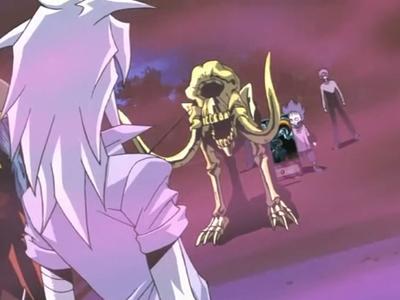
Yugi is often forced into playing shadow games by Yami Bakura, Marik, or Marik’s mind-slaves. As mentioned before, Marik creates a death trap for Téa and Joey which would trigger if Yugi/Yami Yugi didn’t play against him. To learn the location of his kidnapped friends Yugi must play alongside Kaiba on a skyscraper’s glass rooftop, set to shatter once their LifePoints hit zero, flinging them into a portal to the shadow realm if they lose. Despite the impossible positions Yugi is put into by Marik, it’s hard to overlook that Yugi is undoubtedly a risk taker. Because of his hubris, he consents to being lured into a dark underground room where he is consequently strapped into a dueling ring with approaching spinning blades that can send his soul to the Shadow Realm. All this, simply because he does not want someone else to own his favorite card, the Dark Magician.
Watching Yugi throw his life on the line (physically and spiritually) and consistently win gives viewers a warped perception of gambling. Again, relating to the world through Yugi, who inherently wins everything, glosses over the risks of gambling to viewers. Putting one’s life on the line so frequently is not a good habit. Why does Yu-Gi-Oh! promote risk taking in a world with such overpowered manipulative villains?
Inspiration
One of the scariest parts of Yu-Gi-Oh! is also the most inspiring. When Mai fights Marik in a Shadow Game she and Yami Marik lose pieces of their memory whenever one of their creatures die. The show makes a compelling literal metaphor. Character’s souls and the monsters/cards in their deck are connected. Duel Monsters to us seems like nothing more than a hobby but to the characters in the show dueling is a way of life. They are passionate about what they do. In the first episode of the series Yugi’s Grandpa explains that he “put [his] soul in [his] cards” (Yu-Gi-Oh!). Characters put their heart and soul into making and dueling with their decks and it seems as though viewers would benefit from adapting such a practice in their every day lives. Many people don’t try their hardest because they are afraid to come up short of expectations. Opposing reality, it is inspiring that every character in Yu-Gi-Oh! always tries their hardest.
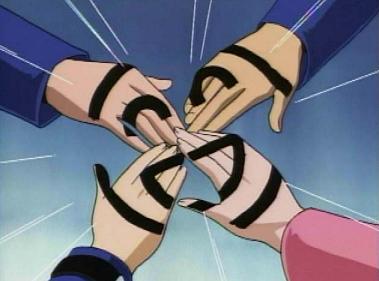
Characters (even minor ones) talk big to their opponents during duels and are brimming with confidence, even when they know they are going up against the King of Games. Why? Because they truly believe they have a chance of winning; they believe in themselves. Though the stakes in duels are ridiculous, and characters live in a world with villains that could forcibly rip out their souls and use their bodies, it’s motivating to see them continue to fight. Characters in Yu-Gi-Oh! need to beat the odds against them to teach viewers to stay strong in the face of adversity and to overcome their fears.
Maybe Yugi succeeds so frequently, not just because he is destined to win and doesn’t need to try, but because he so adamantly believes in his ability to prevail. It’s like the saying goes, “90% of success is showing up.” Yugi always shows up to take on the challenges faced before him and he does so with his friends constantly giving him moral support. His friends believe in him and give him the confidence he needs to take on dire situations. Such a mentality goes beyond just believing in oneself, Yu-Gi-Oh! teaches viewers to believe in others too. It’s an open-minded and open-hearted philosophy.
The Yu-Gi-Oh! universe might be terrifying to think about, but at least the difficult circumstances serve to make the characters’ struggles more compelling. Frequently gambling one’s life is not optimal, but if Yu-Gi-Oh! teaches children anything, it is that the world can be unfair and the only way to combat it is to put a piece of yourself– your hopes and your dreams– into everything you do, because that will make them more likely to succeed. Even in defeat, all characters with good intent are shown as graceful losers because they feel better about losing knowing they tried their hardest. Living life as passionately as the characters in Yu-Gi-Oh!, no one can ever say you didn’t try! The main philosophy of Yu-Gi-Oh!, believing in the “heart of the cards,” is not promoting gambling so much as it is trying to reassure viewers that the more love, time and passion they put into something, the more that something is likely to reward them back. “If you put your heart in the game there’s nothing you can’t do” (Yu-Gi-Oh!).
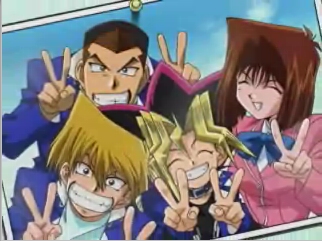
Sources
“The Heart of the Cards.” Yu-Gi-Oh!. 4Kids Entertainment. Studio Gallop. 18 April. 2000. Television.
What do you think? Leave a comment.




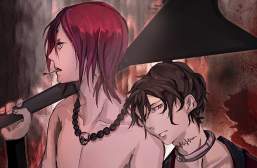
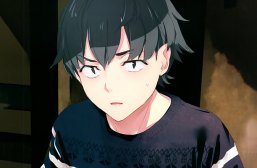

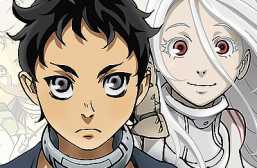
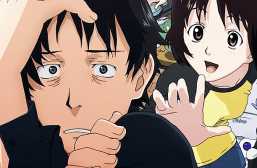
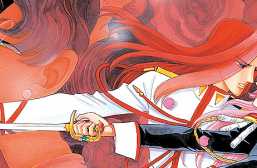
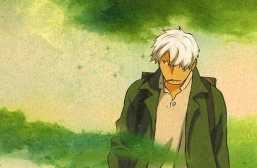
It is interesting, but terrifying is not necessarily accurate. If anything, it is a transitional metaphor for children to understand such terrifying aspects in an inspiring story of overcoming the challenges of things like slavery and gambling. If you go on to see some of the newer spin-offs (notably Yu-Gi-Oh 5Ds), the stories get even darker and more “terrifying” if you want to call it that. I think it would be a good idea to add the evolution into the other spin-offs, because even though I haven’t watched the past two spin-offs, both GX and 5Ds have aspects that could support your arguments of dark or terrifying themes.
Do the spin-offs transition into darker material? I haven’t watched any of the newer ones either and only vaguely remember Yu-Gi-Oh! GX which I watched as a child. I assumed they got more censored over time but if that’s not the case it would definitely make an interesting article to see the transition of certain themes from the original animations throughout the franchise’s spin-off series.
GX starts off much more child-friendly (if you want to put it that way) and transitions into a much darker show when they enter an alternate dimension known as the Dark World, which is a type of monster in the card game. It is a dictatorship that seems reminiscent of some depictions of Hell. The original Yu-Gi-Oh overall seems the most tame of the three I’ve seen.
Dark magic, action, peril, souls being bound to items of immeasurable power… not really a children’s card game if you ask me.
Yu-Gi-Oh was One of My Favorite Animé series Next to Pokemon and Digimon. I used to watch “Yu Gi Oh” for the 1st time when I was 11 or 12.
A good article. Yu-Gi-Oh! is one of thsoe series that really polarises people around my way. It’s definitely one of those early shows that showed me that there was mroe to anime than Akira, GitS and Ninja Scroll. I’ve not read the manga, but if I recall correctly, is it not supposed to be darker than the anime? In part I think this a cultural thing though. You look at the themes addressed in shows like Digimon (spousal splits, dead relatives, depression) compared a lot of Western shows pitched at a similar age group, and Japan does at times seem to push things a little further.
I remember reading the manga and being relatively surprised at how dark the ‘shadow games’ were – they were so much different than the 4Kids anime version! Also, I never thought much about Yami’s ‘mind crush’, but if you think about, it’s pretty scary. Nice job on the article!
I played the game a lot, but what always struck me is how silly his hair is.
Hahaha, compared to all other leading characters Yugi definitely has the craziest hair.
This is strife with innacuracies and a general lack of awareness of the Yu-Gi-Oh series and anime overall.
My misspelling of inaccuracies aside.
I feel that terrifying is a bit strong. That being said, I do find it fascinating that Yugioh (and cartoons in general) are used as a medium to translate deeper thematic elements to life.
I do find it ridiculous that Yugioh manages to pull a win for the most ridiculous circumstances ever, but that is for another time. Great work on the article.
Love reading article on YuGiOh! I am so addicted to this TV series and as an artist, I love to draw huge drawings of the characters.
This show went on forever. I don’t know if there’s any plot really.
I had never enjoyed a Manga series this much, except from Sailor Moon. But this series is the best when it comes down from it’s category.
I’m still not entirely sure what’s up with Yugi’s hair.
It’s a great visual motif, and if he ever gets into a really tight spot, he could probably poke his opponent’s eye out with his pointy bangs.
This is a very unique situation: when a show has a stupid premise (card games) and actually pulls out a good, intense story.
Even to this day as an adult, I still think YGO is pretty dark in some ways. I wouldn’t call it “terrifying,” but maybe just a little…disturbing.
Quite a few people have questioned my use of the word terrifying, I just thought it sounded nice but if I could change it I think “Disturbingly Inspiring” would have suited it better.
I watched several episodes of Yugi-Oh!: Duel Monsters growing up, and I agree with many of the points brought up in this article about it emphasizing the triumph of friendship and downplaying a lot of the darker themes. I also agree that in this particular series of the franchise, “disturbing” would be a better word than “terrifying” to describe those darker themes.
However, I would say that the manga has more terrifying aspects to it. I’ve only read a few chapters of it, but I would say that Yami-Yugi’s presence in Yugi’s body is (at least initially) terrifying, because Yugi is unaware that he is sharing his body with an ancient spirit – and that Yami-Yugi takes control of his body without Yugi’s knowledge or consent. And the “Shadow Games” themselves are much darker than the ones portrayed in the Yugi-Oh!: Duel Monsters series, with more dire consequences. In the few chapters I read, Yami-Yugi’s opponents ended up with their minds broken, literally set on fire, and even poisoned.
Cool article! I still remember when the cards used to be in.
In my opinion, there is nothing like the original Yu-Gi-Oh! I never looked at it as a terrifying show, only inspiring, because of how much they value friendship. I think Yu-Gi-Oh! has something to teach all kids.
In my opinion i don’t see anything wrong with it yugioh is a strategic game that shows a lot of time and thinking is considered in order to become engaged into it due to this response i am a yugioh player so i can vouch for it.
It’s too bad that the cards you can buy from the series was to expensive.
I remember that I cried during the final episode of this series, it really touched me to think that it was all over.
The dub by 4kids is littered with horrible voice acting, lame jokes, and plenty of cringe worthy moments. If anyone considers to watch this classic, go with the sub.
Totally. I must admit i’m seriously disappointed with what 4kids turned this show into, it’s just another shining example that they should leave animes undubbed and subtitled, i know Japanese voices can seem to some to be irritating but they have more emphasis and no one makes them say stupid phrases like they do in the English versions, it dumbs down the whole experience.
Unless of course, you’re the kind of person who likes their ridiculous puns and cheesy lines. I’m sure the quality was significantly brought down, but heck if I don’t get a chuckle out of how silly they are every now and then, haha.
I have the cards and the DVDs and the toys and the video games.
Blast from the past! My favorite characters from this series were Yugi and Kaiba.
I love 2D animation that still holds up today.
This was interesting to read! I’ve seen about four random episodes of Yu Gi Oh when they were on TV so I don’t know much about it. I do LOVE the Abridged series by Little Kuriboh and I think Yu Gi Oh is still loved thanks to this work. I’ve personally never liked the art style or the animation, but I decided to look into the amount of filler in the series. http://anizkeep.free.fr/yugioh-filler-list.html Apparently the first 120 episodes or so are the only ones worth watching? Anyway, I enjoyed the points you made about the darker aspects of the series. Nice article!
Thanks! And I’m definitely going to check out the Abridged version, they are always hilarious!
If you haven’t seen it yet, you must!! No worries.
I don’t know about how much of it is worth watching to you, but I found the first three series to be pretty good. I’ve also heard some pretty good things about the fourth season but it didn’t hook me. However, as with any extended anime, the real question is if its worth the time. I think it may be worth it to at least watch a few of the different arks. You don’t even really have to watch them in any particular order as each ark is about the length of a typical season (12-13 episodes) and enjoyable in their own right.
It was a pretty good show, I enjoyed it very much.
I think something that was left out a bit was that around the time that Yu-Gi-Oh! was released here in the states, we also had access to the cards as well. The show acted as a bridge to demonstrate a very loose way of dueling. Perhaps a big part of the lack of understanding the show’s depth lies in the fact that it was almost always promoting new cards coming out. I remember during the battle city arc how amazed kids in my class were with Joey’s deck in particular. A week later everybody had a Jinzo. I think if the anime and card releases were a bit more spaced out, the show could be remembered as having more depth rather than the laughable cringe worth show that has spawned a hilarious abridged series.
“Loose dueling” indeed lol. I always enjoy moments in the show when someone plays a card “without anyone else noticing,” or refusing to reveal what a card does, because it’s so hilariously unfair and unrealistic (not to mention all the times the general rules go out the window). I didn’t know they timed the card releases like that, though it’s quite a good marketing strategy.
We needed an article like this! Yu-Gi-Oh is my favorite anime. In Italy we watched the Italian dubbed version of the English/American one, and now I am re-watching it in Japanese with subtitles (I also read the manga). But it seems that when I talk to people about it their only comment is: “YuGiOh was created only to sell cards, it’s one of those anime”. As you do, I truly believe that there are many themes we can explore in YuGiOh, and one of this is that it is almost terrifying. Probably the manga is more terrifying than the anime!
Thank you for the kind words! I agree with you especially since my interest in the show as a child and adult did not stem from the actual trading card game, I collected ones I could for the graphics but never played. Stay tuned for another article I may be writing about Yu-Gi-Oh! after this one!
Great article, I’ve always wondered about the vaguely mixed message Yu-Gi-Oh! particularly the constant gambling aspect of it.
Brilliant article love this show back when i was a kid
I agree with this article. When I was younger, I adored Pokemon, but I never could get into Yugioh because of how darker it seemed in comparison. It was only until my best friend introduced me to the Yugioh card game that I became obsessed with it (in fact, my friend grew to regret introducing me to the card game due to how many times I trounced him in our own duels!). I’m surprised you didn’t mention the manga in this article. The first volume of the manga especially was extremely dark. Yami Yugi was more like a vindictive spirit of vengence than the impeccable duelist the anime portrays him as.
Interesting take. I was rewatching the series recently for the first time since childhood and I was definitely surprised by some of these themes.
See, this sounds like something I wouldn’t mind watching if it wasn’t “kidded” down for the US version.
Its interesting how there is a lot of darker imagery and darker themes in the original story, but doesn’t help that the show is always an advertisement for the actual cards. Maybe it would’ve been different if 4kids didn’t dub it, but then we wouldn’t have yugioh abriged would we? lol. But I jest, still interesting article!
The card game may be called Duel Monsters, but a reason it may be called Yu-Gi-Oh! instead of Duel Monsters may be because of a game, with a similar title and game play, called Duel Masters, which is now made into the adapted version Kaijudo. Just thought I should let you know that important bit of information.
Terrifying…the shadow realm is that side of the series that really gives on pause. Nothing like losing your soul to rise the stakes of a card game.
(but yes you make a good argument for the inspirational side!)
I always thought the main character from Yugioh was suffering from multiple personality disorder. When he is just normal Yugi he is very timid and always unsure of himself. The moments when Yugi has to do something more difficult or that requires strength and courage he has to call on Atem, the pharaoh within him. When Yugi is Atem he becomes fearless, and can concur whatever is blocking his path to success. One of the final duels is Yugi against Atem, which is a test to see if he can overcome his disorder.
That’s an advanced way of interpreting the show right off the bat. I first watched it as a very young child so nothing like that occurred to me and I accepted the plot line handed to me by the show itself. Needless to say I was also quite flabbergasted upon first hearing the interpretation of Winnie the Pooh characters as mental disorders.
I did not realize Yu-Gi Oh! started out as a horror manga. It has darker themes, but so do a lot of shows. Maybe its just because it changed so much from the original and the horror was shoved aside or maybe I just never looked at the big picture. I think I got that they were playing for their souls and some of the characters were pretty messed up, but it never struck me as horror.
Great piece. I went back and watched the japanese version of Yu-Gi Oh!,and I was surprised at the dark elements that were censored in the 4kids version. There were moments that I couldn’t believe what I was seeing. It had been a while lol
I never viewed the show or card game as such. Though I definitely see the horrors of gambling and slavery in the show.
Thanks for your article Slaidey!
To me, it started off really good, but after 5Ds it started to get lost for ideas, so it picked weird and random ideas, getting sillier with each season. The hair has just gotten weirder and the plot has completely failed to engage me. I’ll stick with the first three series, but I’ll leave the rest untouched. Again, just my opinion, please don’t crucify me for that.
Excellent article! As someone who essentially wanted to marry Yugi in my youth, the show I watched every Saturday morning, was incredibly censored. However there were some elements of the orginal that had to creep through in order to have somewhat of a contrsucted plot. Two particular things that come to mind is the infamous “Shadow Realm” which looking back now as an older adult, the pieces connected that the Shadow Realm was essentially the anime’s interpretation of Hell. Another disturbing image I recall from the show, and was included in the 4kids dub of it, was Mai Valentine in the hour glass. I believe she loses a vital duel and goes into a coma. But from Mai’s internal dream, she is encased in a giant hour glass, sand slowly consuming her body as she pounds on the glass helplessly trying to get her friend’s attention, to no avai. There’s is also the grusome nature of Marik’s childhood, which I don’t recall how it transpired in the show’s english relese, but for some reason that image of Mai really terrorized me as a child.
I am suffering from mental illness, i felt so much pain in my life, i was unconscious about it most of the time: i can tell you, this card game is all about psychology, about pain, the themes couldnt be darker, i was bound so strongly to the anime and the card game during my cruel childhood and youth without any friends to play with.
From an psychoanalytical point of view: personality disorders everywhere, emotional schism, borderline: Marik Ishtar with his painful childhood background is the perfect example.
– Kaiba is an anal-sadistic character, completely cold, repressed feelings, only seeking for power and humiliation (in form of victory/trimuph): obsessive-compulsive disorder, not seeing his own great depression and suffering, with no friends. He was my favourite identified character next to
– Pegasus, idealized the love of his youth, not a healty bounding to the human he loved, instead his ideal “pictures”, which he painted. When she died, he fell into depression (which was already there before) and made his own personality monstrous through the monster card game (analogy to his “love”). He was still reading comics when he became an adult; the idols of his youth, the comic characters, becoming the monsters to protect him: there lies the truth about the whole design of yugioh.
“Relinquished” was a very special card for me, i can now see all the suffering in this card: the “castrating” shear hands and the devouring ability, the spider-like optic of a “devouring” femininity (“vagina dentata”), the “all seeing eye” (allmightiness fantasy) as a symbol of toxic, hyperpenetratic “drilling” masculinity, like the sting it has. And the name means: somebody who has relinquished himself, forced to build up these psychological mechanisms to survive.
– Milenium Items symbolize the kind of defense mechanisms you have to build up to protect your instable psyche:
to SEE and know everything
to (dis)puzzle, dissociate, to protect parts of your psyche (mental disorder)
to be able to PUNISH, through the staff (again hypermasculine “drilling”)
to be able to jugde everyone from a morally superior point (libra)
The “shadow realm” is exactly what it says: it is the undiscovered, uncouncious part of your psyche, battling every day with the will to survive, with the danger of “losing your soul”.
Of course you have all the references to ancient collective unconcious themes, like the sleeping pharaoh awakening, leviathan, atalantis, secret of the pyramids etc. etc., which leave a huge impression on people o n t o p of that.
Thats why it still is a “horror” game. And why it is more than a simple game. And why i was fascinated by it so much by it during my childhood, addicted to it in my pain and suffering.
Yugioh is about unspeakable pain and suffering, the absolute hell of life, about the most atrocious topic of humanity.
I am convinced 100%.
Wow! Such a thoughtful comment, honestly, I’d much rather read your article on Yu-Gi-Oh now! With so much commentary you should turn this passionate insight into something to shake the fandom. You also have be 100% convinced!